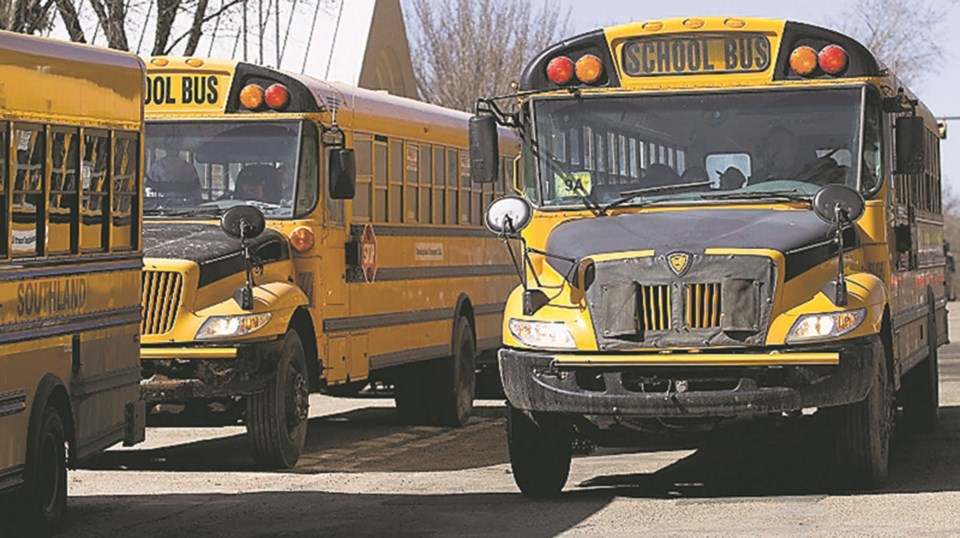School bus drivers will no longer have to complete entry-level truck driver training before hitting the road as of this Sunday — a change one St. Albert bus company manager says should make it easier to get kids to school.
Alberta Transportation Minister Devin Dreeshen announced April 13 school bus drivers would no longer have to take Mandatory Entry Level Training (MELT) when seeking a Class 2 licence as of Sunday April 23.
Alberta motorists have traditionally needed a Class 2 licence with an “S” endorsement to drive most school buses. (The “S” comes from completion of 16-hour course on bus operation, which includes a written and on-road test.)
The 2018 Humboldt Broncos bus crash (which claimed the lives of 16 people, including four former St. Albert Raiders players) drew national attention to bus and truck driver training. In 2019, Alberta was one of several provinces to mandate MELT programs for truck and bus drivers.
Alberta was the only province to apply this MELT requirement to school bus drivers, Dreeshen said, speaking at Camilla School in Sturgeon County April 13. Alberta is short some 5,000 truck drivers and 335 bus drivers at the same time that school buses are set to see a surge in students because of a recent change in rules for school bus funding (specifically, the walk-limit).
“We’ve heard loud and clear from the busing industry and particularly the school bus industry that MELT is a barrier to hiring drivers in the province,” said Dreeshen.
Dreeshen said removing MELT would make it easier to train bus drivers without affecting student safety, adding the province had actually seen a slight increase in bus-related accidents since it introduced the program. He said the province is working with industry to roll out a voluntary on-the-job training program for Class 2 and Class 4 school bus drivers later this year which they believe will be more effective than MELT.
Good move, say operators
Cunningham Transport general manager Laura Doroshenko said she was overjoyed by the end of MELT for school bus drivers. She said MELT was a direct cause of the current school bus driver shortage, as few drivers were willing to commit the four-to-six weeks needed to complete it to get their licences.
“All of this came out of the pocket of Alberta bus operators,” Doroshenko said, adding that she has spent some $1.4 million on MELT since it was implemented.
Lauri-Ann Turnbull, transportation manager for Greater St. Albert Catholic Schools, said she saw little change in school bus driver safety following the introduction of MELT, but did notice it interfered with training new drivers. The result was driver shortages and slower service.
Turnbull said she is confident dropping MELT for bus drivers will not affect student safety, as drivers still have to go through rigorous training to get the “S” endorsement.
Doroshenko said MELT was excessive for her drivers as most of them were retired truckers with Class 1 licences and extensive on-road experience. She said these changes should help address Alberta’s bus driver shortage and result in fewer delays for riders.
“Safety will never be compromised with this change,” she said.
In an email, Shauna Nordstrom, a St. Albert parent whose son, Logan Hunter, died in the Humboldt Broncos crash, expressed skepticism of this change, saying one driver she had spoken with had said Alberta’s driver shortage was due to low pay, rather than MELT.
“I continue to stand for better standards. Education is not a compromise.”




